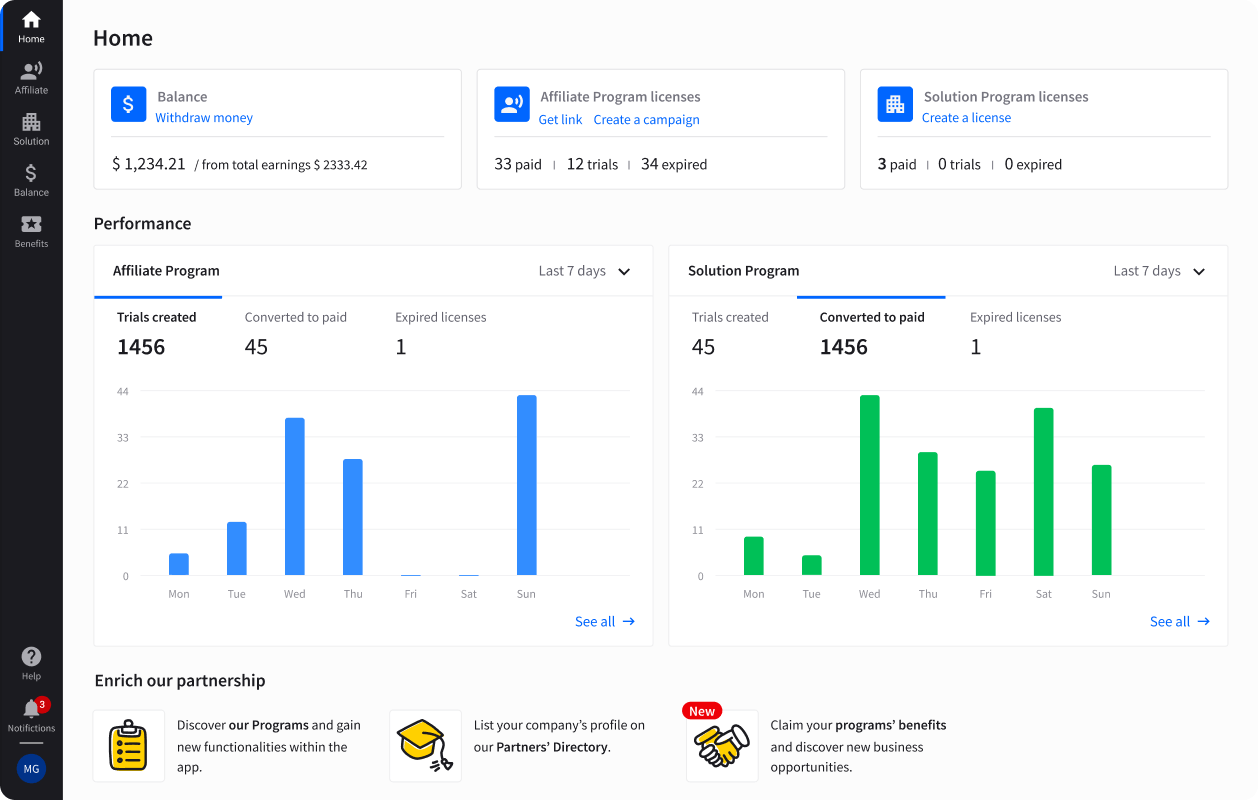Showing top 0 results 0 results found
Showing top 0 results 0 results found

You may be running your own advertising agency, or you’re just about to start building a SaaS marketing team for your product. Finding the right people who will be able sustainably and continually grow your business is tricky, especially if you’re not sure who you should look for. You may also feel haunted by the ‘You are only as great as your people’ motto that so many startup founders swear by.
No matter how brilliant your mind or strategy, if you’re playing a solo game, you’ll always lose out to a team.
Reid Hoffman
In today’s post I’m listing 7 types of marketers you need to have on your team to make sure that it performs and drives results. I will also share my thoughts on structuring and hiring great team members.
Content editor
The content editor will be responsible for creating and maintaining content on your website. This includes writing blog posts, creating short videos, and editing newsletter and landing page copy - the specifics will depend on your business type and industry.
It won’t always be possible to employ a full-stack marketer here with a background in both writing and graphic design, but I highly recommend doing that or at least encouraging/training your content creators to use basic visual editing tools, such as Canva or Buffer’s Pablo. For more advanced assets, you may want to hire a visual content maker as well, to work along a copywriter.
Email marketing pro
As the title suggests, email marketing pro will be someone focused on each and every email that you send to your users or customers. This means taking care of onboarding and activation emails as well as newsletters and outreach emails.

Once again, this role will involve not merely writing copy but also being able to handle more technical side of marketing, including tracking and automation.
Social media marketer
Creating content solely for social media is a job in itself, and that’s why you should hire a social media marketer. This advice is especially valid now when just sharing updates in social media is not enough to gain organic reach and traction. What you need instead is being as creative as it gets to stand out from the crowd.
The new breed of social marketers need to not only be able to write an engaging update but also use tools like live video, visual editors, and automation apps, such as CoSchedule and SproutSocial, to reach out new and existing audiences.
This position will also include managing paid ads on channels like Twitter, Facebook and Google Adwords which will require content creation and analytics skills.
Product marketer
Product marketer’s role lays at the intersection between product and marketing, so this person probably shouldn’t be attached to just one department. They’re also less focused on creating content, especially compared with the positions I’ve listed above. Product marketer does - in fact - creates some content, but much of their time is spent connecting with and observing how users move through the product, along your UX team.
They use tools like Mixpanel, Amplitude, and Google Analytics on a daily basis, but they’re also constantly getting in touch with customers in real life, via Skype, Google Hangouts or during live sessions or 1-on-1 interviews. This person will also work closely with the sales and support team helping them identify potential technology partners and supporting them in handling product feature requests. They will also be crucial for finding product-market fit.
Community manager
Once again, a community manager will likely work switching between different teams. The position is primarily about making sure that users/customers are supported throughout different channels and places, including product and social media channels. This can mean responding to customer support questions one day and reaching out to commenters in an external marketplace the other.
The community manager within your team will probably want to closely collaborate with the social media manager as their roles overlap in some areas, including social listening and interactions on Facebook or Twitter.
Technical lead
Taking care of the code behind your website or a blog will be a technical lead’s job. They can also work closely with a data analyst and content creators to make sure that all pages are SEO-optimized and tracking & automation tools are working correctly.

When hiring a technical lead, you should be looking for someone with a background in engineering but also someone who has an understanding of marketing processes and the importance of testing different methods and approaches.
Data analyst
Data analyst job is all about supporting other team members in their efforts to document, report, and visualize what they do on a daily basis. From my experience, it’s great to have someone within a team who will be able to check if things are measured properly and fix things if they’re not. This is likely to be a person with some technical and marketing background.
Ok, that’s all roles that - in my opinion - are necessary to build a compelling marketing team. Structuring it this way, you’ll be able to make sure that all of your team members’ skills are employed and put to good use.
4 things to remember when building a marketing team
Remember to reevaluate this list though. It’s not about hiring 7 people on your team. It’s about making sure that your product or business is covered on all levels.
Please note that I haven’t added a growth hacker or a growth marketer to the list. That’s why - as I believe - all team members should see growth as their top priority.
And by saying ‘growth,’ I don’t mean the growth-at-all-costs spiral that shuts everything else in the sake of user acquisition. This approach will hit your business hard after a short while, so make sure that you know what’s happening in all areas at all time, including retention and activation of users or customers.
Also, it’s important to remember that hiring marketers for the product team doesn’t have to mean just creating a marketing department and allowing your brand new employees to stay in that bubble.

Feel free to - instead of dividing your company into different sections - create cross-disciplinary teams focused around different projects, such as API, mobile apps, your product’s website, notifications etc. This way you can have, i.e., a marketer, a developer, and a designer working together on one thing, sharing skills and points of views. Depending on the type of your business, it may as well be more enjoyable for your team members.
Another question that may cross your mind when you’ve gone through the list was: wouldn’t it be better to hire generalists rather than specialists? It may feel intuitive to search for people to have done many things at once in their marketing careers, but it may not be the best approach. It’s not to say that people who can do more than one thing will not be performing within your team. Once you start employing specialists to cover areas like email marketing or content creation, you can be sure that you’re good at what they’re doing, not just mediocre at all things. Their focus is a strength, not a weakness.
Over to you
Would you add any role to this list? What are your thoughts on building a sustainable marketing team? I’d love to discuss it in the comments below this post.



